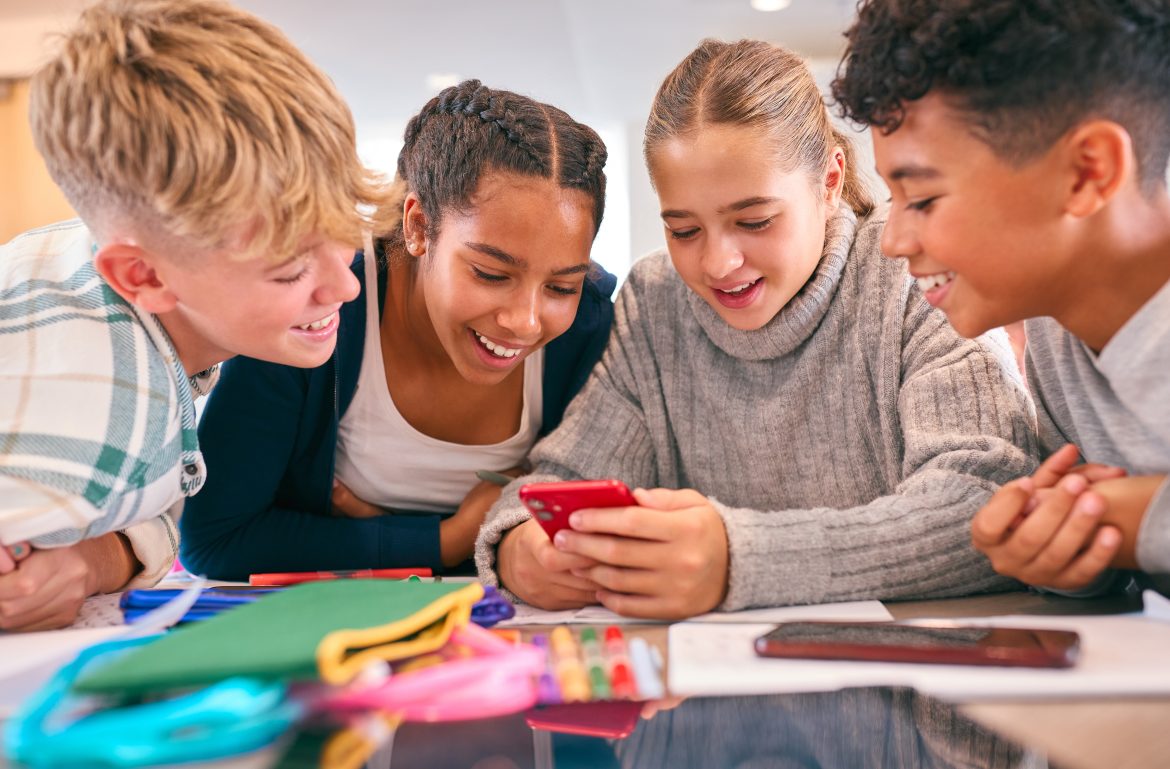Great Morning Team,
At the start of the school year about two weeks ago, our Superintendent of my son’s school district sent out a communication to all parents and students. It was a new district-wide cell phone policy, with the overall direction that at the beginning of each class, all students’ cell phones had to be placed in a holder at the front of the classroom. The purpose was to enable all children to focus on their work without distraction. Just a day later, another communication was sent out clarifying the cell phone policy, stating that students had the option of either placing their phone in the classroom holder or keeping it in their backpack or pocket, with their phones turned off.
The policy troubled me, specifically about the phones being turned off completely. It just didn’t make sense. I thought about it deeply and wrestled with the “what-if’s” of a child not having the ability to communicate with someone immediately in the rare instance of a crisis, ranging from an intruder in the school or even a student or teacher having medical trouble. I even wondered how many students had smart phones that were connected to glucose monitors. My curiosity piqued to the point where I asked my family to help me run an experiment at the dinner table on that following Sunday evening. I shut my phone down and then at the precise moment I turned my phone back on, Adam, my son, ran his stopwatch. The result? It took a full 1 minute and 21 seconds for my phone to become fully functional to the point where I could send a text message. In my mind, that was 1 minute and 21 seconds too late.
The definition of Civility: The act of being respectful, courteous and considerate toward others.
Rather than attend a dreadful Board of Ed community forum to address my concerns, where communication breaks down and inevitably turns into parent shouting matches at every meeting, I opted for the opportunity to engage in a personable and civil conversation. The next day, I had a great discussion with my son’s new school principal inquiring about my concern. I immediately placed him at ease, acknowledging that I clearly understood the spirit of the policy as it was intended: Teachers have 40 minutes to teach a lesson plan, and with the constant distraction of student’s cell phone use, the experience for the teachers can be analogous to one attempting to herd fleas. I shared the results of my experiment with him and my reasoning why the policy in its current state did not safeguard children and could leave unintended consequences. I provided a simple recommendation: “Allow the child who wants to keep their cell phone in their possession the option to keep it turned off OR have the option to keep the phone on, in silent mode.” The principal’s response: “That’s a perfectly reasonable request, and it makes sense. I will implement it immediately. Done!” And the Principal did just that. The revision of the cell phone policy arrived just this morning to all students and parents, via email.
I will never know the true impact of this policy revision, but what I do believe is that with civility, and a great deal of curiosity, together this principal and I likely improved the ability for students to communicate easily when involved in the most difficult circumstances. Perhaps this policy could save lives in the future, especially in a scenario where every second counts. We all have the power and the capability to make things 1% better every day; both at work, and in our personal lives if we continue to lead with curiosity, ask “why” often, and have the courage to test, experiment, innovate and give voice to our findings.
Beyond this huge win for all students, perhaps the greatest win happened later that evening when I tucked Adam into bed. He engulfed me in a big hug and whispered in my ear, “Thank you for making a difference, Mom.”
Wishing you all a Better We, Better Week! 😊
Lori Beth


Yo peeps! Heard about kv999game from some friends, been playing a while now. It has pretty solid customer support, which is a HUGE plus in my book. Definitely a positive experience. Check it: kv999game